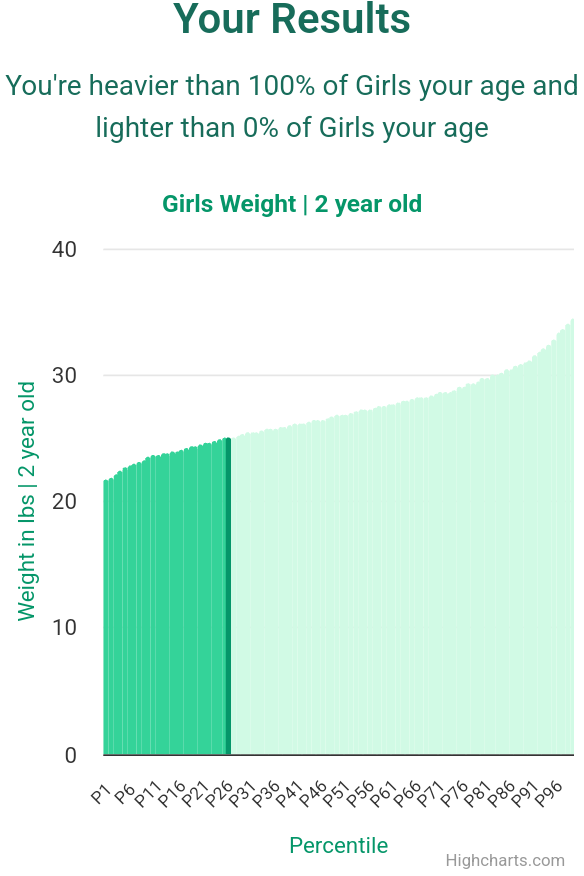Girls Weight chart in lbs for Toddlers 2 year old

General Summary: 2 year old girls weight
In most cases, weight measurements for 2 year old girls will be in the range between 20 and 32 lbs. The average weight for 2 year old girls is 25 lbs, according to the CDC and anonymized data from users.
All Results
Enter your weight measurements above to see how they compare
So far, we have recorded [0] weight measurements for 2-year-old girls on LifeMeasure!
(chart updates daily)
See more ages